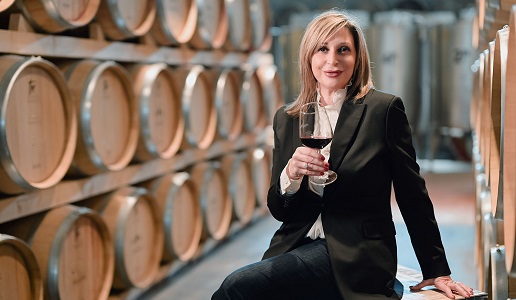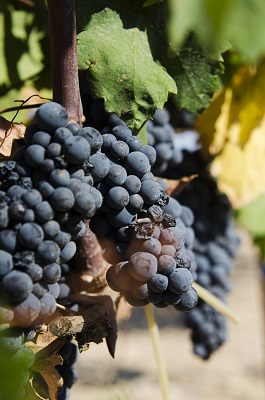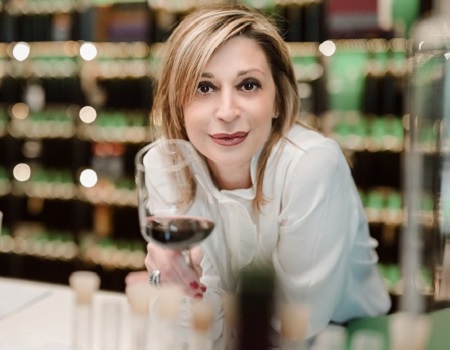The Apulian situation of Primitivo di Manduria (1)

We had started to look at some critical issues in the wine sector in Puglia with Professor Fregoni (click on Interview with Mario Fregoni | DoctorWine). We are returning to the topic by deepening it with interviews as well. Today the president of the Consorzio di Tutela del Primitivo di Manduria Novella Pastorelli.
Will it be a good vintage or a bad vintage? The above dilemma is the pre-harvest summer catchphrase, or at least one of the main ones, that hammers winemakers as they prepare with fear and some anxiety to face the 2023 edition grape harvest. The current year will remain etched in memory and stories: for many, but not all, it is the annus horribilis.
In Apulia, the situation is particularly complex and varied: the strong heat and the killer downy mildew have compromised production, but different areas have not been equally injured. Timing made all the difference, those who intervened quickly managed to salvage what could be saved, those who were not as immediate were less fortunate, and the estimate of losses could be around 40-50%. But beware, high inventories will provide a breath of fresh air especially for those who make the big numbers and have large stocks.
Puglia is the second region in Italy after Veneto in the inventory ranking. There are more than 7 million hectoliters of wine stored in Apulian wineries as of April 30, 2023, according to the findings of Cantina Italia Report No. 5, prepared by the Central Inspectorate Department for Quality Protection and Fraud Repression of Agri-food Products (Icqrf) on behalf of the Ministry of Agriculture.
 The overall context is articulated and thorny, Donato Pentassuglia, Regional Councillor for Agriculture has decided to act together with the supply chain to reduce yields per hectare. In particular, reads the resolution, "for wines with the typical geographical indication "Puglia," "Salento," "Tarantino," "Valle D'Itria," "Daunia," and "Murgia" for the type "reds" with the specification of the grape variety "Primitivo," the maximum production of grapes per hectare of vineyard in specialized cultivation, within the winery, must not exceed 12 t/ha." Councillor Pentassuglia's measure is expected to stimulate the amendment of the production specification for Primitivo di Manduria.
The overall context is articulated and thorny, Donato Pentassuglia, Regional Councillor for Agriculture has decided to act together with the supply chain to reduce yields per hectare. In particular, reads the resolution, "for wines with the typical geographical indication "Puglia," "Salento," "Tarantino," "Valle D'Itria," "Daunia," and "Murgia" for the type "reds" with the specification of the grape variety "Primitivo," the maximum production of grapes per hectare of vineyard in specialized cultivation, within the winery, must not exceed 12 t/ha." Councillor Pentassuglia's measure is expected to stimulate the amendment of the production specification for Primitivo di Manduria.
In May 2022 the confrontation was interrupted, it was made public with a press note that said, "There are no prerequisites to go ahead with the modification presented to the Apulia Region in 2020 of the specification of Primitivo di Manduria, which provides for the transition from Doc Primitivo di Manduria to Docg Primitivo di Manduria. The decision that matured already in mid-May was unanimously shared by the CDA in a series of pre-councils at the end of which the sense of common good prevailed."
The issue is still the subject of a lively discussion that has led to nothing accomplished; the goal is to create a DOCG for Primitivo in the dry version and a spillover DOC that in its name enhances the territory of origin, such as Manduria doc, Rosso Manduria or Manduria.
There are 57 member companies of the Consortium for the Protection of Primitivo di Manduria with 1,500 vine growers with more than 5 thousand hectares under vine; in 2019, according to data provided by the Consortium, 17 million liters and 22.7 million bottles were produced with a turnover of more than 147.5 million euros; in 2020, 21 million liters and 28 million bottles were produced for a turnover of more than 182 million euros; in 2020, bottled wine in the production area corresponds to 6. 318,085.38 liters (30%), outside the area to 14,989,840.5 liters (70%).
What is the common good? Up to this point there has been more talk about variety than territory of origin, in a context of shrinking consumption, price crisis, climate change and consumer tastes perhaps the secret lies in communicating and telling more about terroir and its characteristics and not the Primitivo variety that is grown everywhere or almost everywhere.
To make the point, we interviewed Novella Pastorelli, the president of the Consortium for the Protection of Primitivo di Manduria, Michele Schifone oenologist and owner of the Cicella masseria winery, and Donato Pentassuglia Regional Agriculture Councillor, asking them the same questions, to hear the different opinions. See Pastorelli's position today, the others tomorrow.
DoctorWine: Primitivo is a grape variety that represents an Apulian, Italian and international value. It is probably the most iconic in Puglia, what are the reasons for its success in Italy and abroad and what distinguishes it from other valuable native varieties?

DW: Stock volumes and lowering costs were until recently the main concerns of producers in the area, the arrival of downy mildew-a fungal disease that affects vines-has turned everything upside down. The 2023 vintage hangs in the balance, will the aforementioned inventories save the wineries' budgets?
NP: The arrival of downy mildew has certainly had a significant impact on the production of Primitivo di Manduria and on our winemakers. The 2023 vintage is therefore in the balance because of this disease and its impact on production. Stocks remain a problem; we hope that this year's low production will serve to realign the situation. The Board of Directors had decided to convene an ordinary meeting to consider the possibility of reducing vineyard yields to the maximum extent of 20 percent of the Primitivo di Manduria DOC production from the 2023 harvest, in accordance with Article 39 lex 238/2016. This decision had been made considering the high quantity of wine stored at cooperative and private wineries, caused by the mismatch between the increase in production and the decline in sales. Unfortunately, however, there has been a radical worsening of the phytopathological situation caused by the heavy rains that fell in the weeks of late July throughout the Primitivo di Manduria area. This phytopathology has irreparably compromised grape production in numerous affected plots, leading to an estimated 70% to 80% decline. Several plots previously considered undamaged have also been affected. Upon further evaluation and consideration, the Board decided to call off the previously held regular membership meeting. This decision was not made to force a reduction in vineyard yields, but rather to ensure that the assembly, as a democratic instrument of confrontation, could make an assessment regarding the possible cut in yields. The Board of Directors has always attached great importance to members' participation and sharing of decisions. The Consortium is committed to promoting transparency and openness in the decision-making process, recognizing the importance of involving all stakeholders in the debate and evaluation of choices affecting the wine sector.
DW: Manduria producers are deciding to apply for recognition as a DOCG, thus joining it with the "natural sweet," already a DOCG. However, there seems to be no contemporary demand for recognition of a spillover DOC, leaving this function to the Primitivo del Salento igt, which affects a much larger quantity of producers than Manduria. A consideration of yours in this regard?
NP: There is no spillover and the balances are as they are today. Docg is the evolution of doc, and it is an exclusively Italian excellence; at the European level we find no such distinction. At the European level there is already the GI reform that is almost at the end of its regulatory process. The PDO designation (European equivalent of DOC, ed.), which our Primitivo di Manduria boasts of having, is associated with a strong identity and prestige, and indicates a product of high quality and authenticity. This recognition testifies to the value and uniqueness of the wine, linked to its tradition and geographical area of production, its endogenous and pedoclimatic characteristics.
DW: Does the region's resolution on reducing grape yields for PGI support producers?
NP: Of producers and processors and especially in support of quality.
See you tomorrow for the other two interviews.

 Italiano
Italiano







